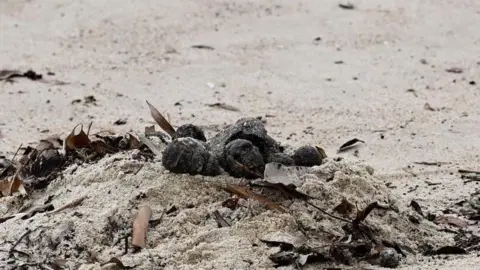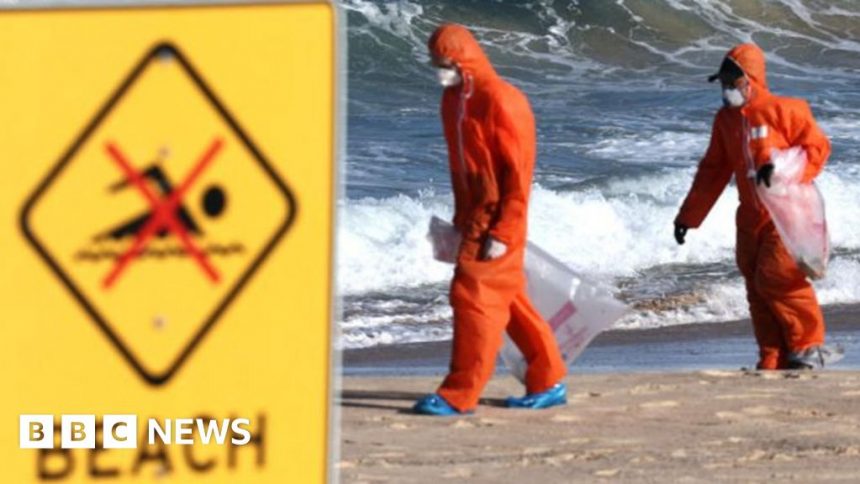Sydney identifies ‘disgusting’ balls that shut beaches
 Getty Images
Getty ImagesAustralian scientists have solved a mystery which has gripped Sydney: what were the sticky dark blobs which washed up on some of the city’s famed beaches last month?
Initially believed to be tar balls, they were in fact a “disgusting” combination of human faeces, cooking oil, chemicals and illicit drugs, researchers say.
Eight beaches including Bondi were closed for several days and a massive clean-up ordered after thousands of the black deposits started appearing from 16 October.
Testing by chemists has determined the balls were the result of a sewage spill, though their exact origin remains unknown.
Last month authorities in New South Wales (NSW) said they suspected the objects were a mixture of fatty acids, fuel oil and chemicals found in cleaning and cosmetic products.
But further testing found the material is unlikely to have originated solely from an oil spill or waste from a ship, as some had thought.
“We found the sticky spheres contained hundreds of different components,” said Associate Professor Jon Beves from the University of NSW, who led the investigation.
The balls had a firm surface – hardened partially by accumulating sand and minerals like calcium – and a soft core.
Inside was everything from cooking oil and soap scum molecules, to blood pressure medication, pesticides, methamphetamine and veterinary drugs.
Professor William Alexander Donald said they resembled fat, oil, and grease blobs – often called fatbergs – which are commonly formed in sewerage systems.
Detecting this along with recreational drugs and and industrial chemicals had “pointed us to sewage and other sources of urban effluent”, he explained.
The researchers said they had received unconfirmed reports of smaller but otherwise similar balls washing up over the past two years.
Sydney Water has reported that there are no known issues with waste systems in the city.







